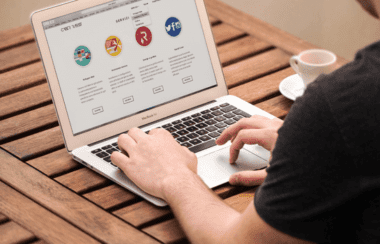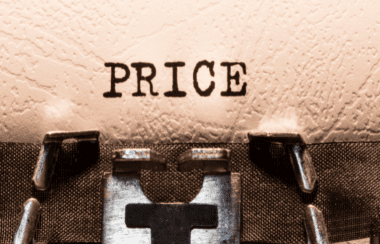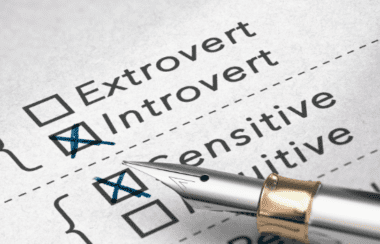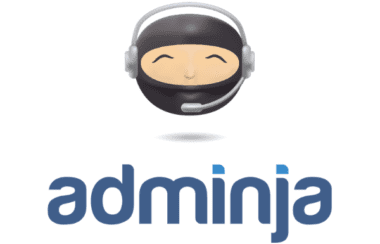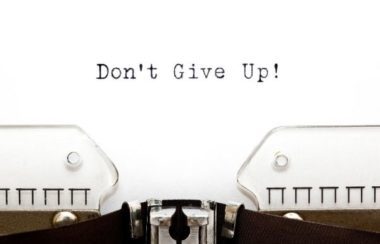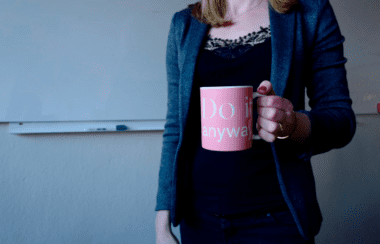How to Choose the Right Freelance Business Name
By Jena Kroeker

“What’s in a name?” asks Juliet in Shakespeare’s play, Romeo and Juliet. And if she were talking about freelance business name ideas, we’d answer, “There’s quite a lot to think about, Juliet.”
After all, as Freelance University co-founder and instructor Craig Cannings says in the Build Your Personal Brand course, “YOU are a brand,” and “Personal Branding is the process of bringing to light all that makes YOU extraordinary and attractive to your target client audience!”
Personal Name vs. Brand Name
One of the most challenging parts of defining your personal brand is deciding whether to use your personal name or brand name as your business name (and domain name). To illustrate, let’s consider the name Freelance University. Many of you are reading this because you’ve already joined the FreeU community or are interested in learning more about it. At some point, the name resonated with you.
For example, you can guess that it applies to freelancing and education. And the word “University” shows that it offers a comprehensive education, specialized and in-depth, mature and social. This has a different connotation than the name “Freelance Kindergarten” or “Freelance Learning Center.”
Now imagine the co-founders, Craig and Kelly Cannings, using their personal names in their business name:
Craig and Kelly’s University
Not quite the same, is it? It’s hard to imagine what kind of courses they’ll be teaching.
Or how about this one?
Cannings University
In my little corner of the world, it’s harvest time, so many people are starting to preserve fruits and vegetables by canning them. That’s what I think of when I see the name “Cannings University.”
Considering Freelance Business Name Ideas
Clearly, the choice of personal name vs. brand name makes a big difference in how your business name is perceived. Indeed, in an article titled “Should you name a business after yourself? Using your name as a brand” Steve Harvey says,
“If you’re the heart and soul of your company, using your name as a brand can be an excellent way to create a human connection with your audience.
“However, using your name as a business name won’t always be the best way to develop a long-standing identity. Sometimes, your name can end up restricting the growth of your organization, and creating confusion about what your brand really stands for.”
Similarly, in an article titled “Should You Use Your Own Name or Create a Brand Name for Your Business?” Rob Meyerson suggests:
“Using your personal name means presenting yourself as an individual contributor and keeping the focus on you. Coming up with a brand name, on the other hand, will require a thorough naming process and will create some ‘daylight’ between you and the business.”
It’s a lot to think about, but as Craig Cannings says in the course mentioned above, don’t get caught up in “paralysis by analysis” when deciding on your business and domain name. After all, your actual business or domain name is less important than the value of your service (and the quality of your website content).
Five Questions to Ask When Choosing the Right Name for Your Freelance Business
To help simplify the process of sifting through freelance business name ideas, let’s examine five questions to determine whether or not you should use your personal name.
1. Is your personal name easy to spell and pronounce?
In a previous FreeU blog post, “The Best WordPress Themes for Freelancers in 2022,” we interviewed Barb Henry, our FreeU Mentor and resident WordPress expert. You may remember that Barb’s business domain name is BarbHenry.com.
She uses her personal name as the title on her website, and it’s a wise choice. It’s easy to spell and pronounce. Specifically, I can’t think of any alternate pronunciations that would make it confusing.
Now consider my personal name:
Jena Petrescue Kroeker
Did you have trouble figuring out the pronunciation? If so, you’re not alone. Here’s the correct way to pronounce it:
• Jena rhymes with “henna.”
• Petrescue is pronounced “puh-trescue” with an accent on the second syllable.
• Kroeker rhymes with Quaker.
It’s not an easy name to figure out, and it’s the source of many comical nicknames I’ve inherited because of mispronunciations. So, needless to say, I choose not to use my personal name as my business name.
To sum up, if your personal name is difficult to spell and pronounce, consider this advice from the article above:
“Some first and last names are easier to pronounce than others, but chances are the brand name you create will be shorter than your personal name (one word rather than two, for example). And since you’re building the name from scratch, you’ll have an opportunity to ensure its ease of use. While there are exceptions, most of the best brand names are short and sweet. Names built from one or more real English words are more likely to be understood, pronounceable, and correctly spelled than many people’s names.”
2. Does your personal name complement and enhance your service offerings?
Returning to Barb Henry, another reason why her personal name is a wise choice is because she’s the face of her company. Customers and clients deal with her directly, and she provides specialized services characterized by her desire to “work together” with clients. Her website says,
“You deserve to work with someone who understands the importance of a quality website and is dedicated to making sure that your website works for you and your business.”
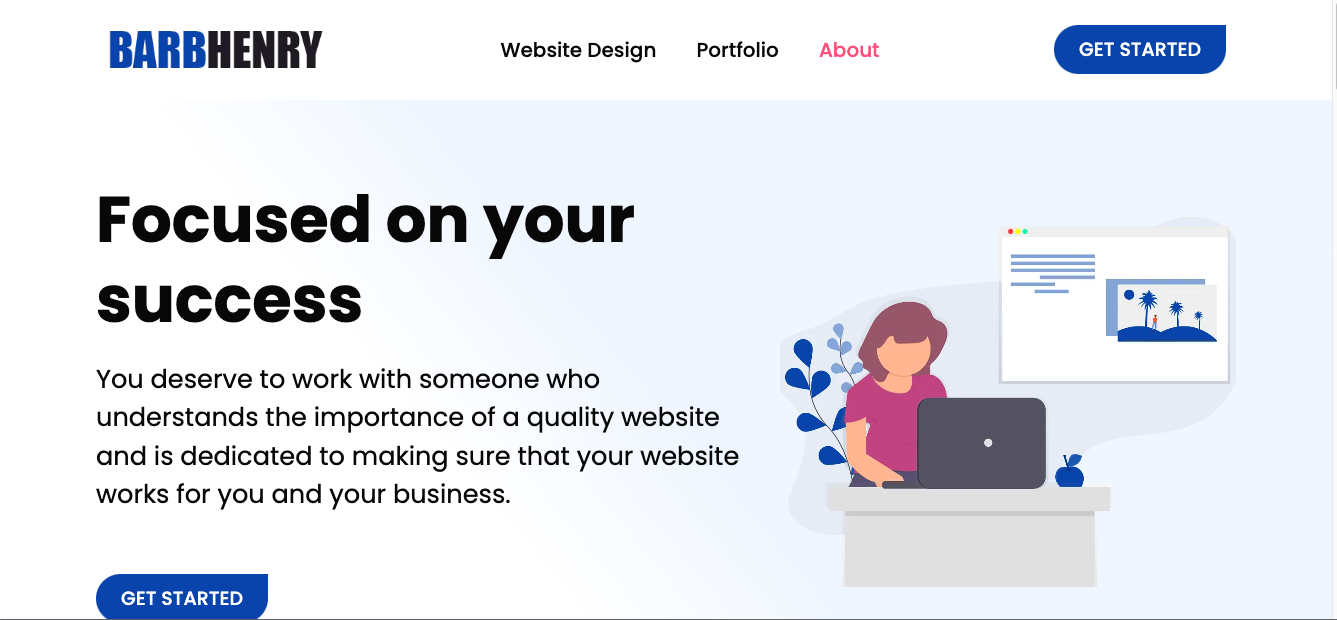
Screenshot via https://barbhenry.com/about/
Consequently, when you’re considering freelance business name ideas, think about which type of name (personal name vs. brand name) will better resonate with your audience and attract them to your services.
As this Mailchimp article says,
“In the split second that a customer spends reading or hearing your name, assumptions will be made about what you do, what you’re like and who you’re for.”
And Syed Balkhi shares some specific advice in his article, “How To Pick A Brand Name With Impact.” He stresses,
“If you’re a solopreneur or someone venturing into blogging and content marketing, you want to consider using your personal name as your brand….
“It’s also a good idea to use your personal name if you’re in a service-based business such as coaching, consulting or freelancing….
“On the other hand, if you’re starting an e-commerce store or a physical product business, you’ll want to choose a brand name that’s not attached to any one person.”
As a result, you can see why BarbHenry.com works well for Barb’s business. And Freelance University (FreelanceU.com), with its wide range of online courses and educational resources, is a better choice than CraigandKellyCannings.com.
3. Is your personal name unique enough?
Barb Henry’s name is also distinctive enough to be unique. For instance, her last name isn’t Streisand (like Barbra Streisand), leading us to wonder whether she sings and acts in addition to designing websites. And I personally don’t know of any other Barb Henrys working in her particular niche.
On the other hand, you might chuckle at these fun facts about my name. Another family member has an almost identical name, except for one letter. This leads to confusion sometimes, where I’m mistaken for her. That’s why I often include my maiden name, Petrescue.
But my maiden name is also confusing. Consider these search results from my LinkedIn profile:
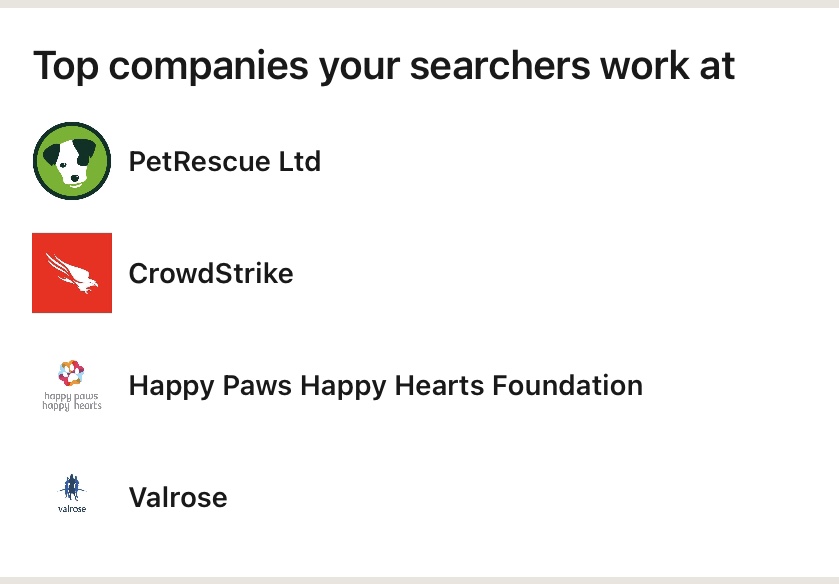
Screenshot via LinkedIn.com
Evidently, my maiden name can lead searchers to believe I work for animal rescue organizations. It’s unintentionally optimized to rank for the keywords “pet” and “rescue.” So, while my personal name is memorable, it’s reminding people of something I don’t do in my freelance business.
Therefore, when brainstorming freelance business name ideas, consider how many other people or organizations have the same name as you do before you decide to use your personal name. And think about what related keywords could show up in searches.
4. Does using your personal name allow for future growth in your business?
When choosing your business name, it’s important to think about the future. Even when you’re just starting out, you want to make sure you aren’t limiting future opportunities and growth in your business. You also want to make sure you don’t pigeonhole yourself into a niche that will be hard to get out of if you want to make a change.
As the article above says,
“If you don’t think things through at the start, you may find that, as you grow, your name starts to limit what you can do. For most businesses, a good name will leave space for brand extension and pivoting. That means steering clear of anything too specific, such as overtly referencing the kinds of products you sell or using adjectives that confine you to one market. Also, your name shouldn’t stand in the way of international expansion (will it sound stupid to or offend speakers of another language?) or be too rooted in contemporary trends or technology.”
This is an important consideration when you’re deciding between using your personal name or a brand name. Which one allows you to grow and possibly expand your niche over time? For instance, if you plan on building a freelance or VA agency, you may want to consider using a brand name instead of your personal name.
As a further illustration, Freelance University has built a team who provide mentorship and instruction alongside Craig and Kelly. For this reason, a brand name works well instead of simply calling the business “Craig and Kelly’s University.”
5. Have you accounted for any future changes to your personal name?
This question may seem obvious, but it’s essential when evaluating freelance business name ideas. According to the article above,
“Depending on your approach to marriage and relationships, there’s a good chance your name could change over time.
“Legally switching the name of your business if something in your personal life changes can be a time-consuming, expensive, and challenging process. Most people would rather avoid the headache.”
There are many reasons why you may want to change your personal name in the future, so think carefully before deciding to use it as your business name. As Craig Cannings explains in the course mentioned above, you can also use “branded names” that include a unique brand name or a person’s name, like AliTheHappyVA.com, or “hybrid names” that include a combination of branded and descriptive names, like Craig’s Copywriting Services. Using these types of names allows you to choose the part of your name that’s least likely to change.
In addition, if a brand name is the better choice for your business, you can use “descriptive names,” like Fearless Business Boss, that include specific action words or keywords that represent you, your services, or your target market.
Final Thoughts and Encouragement
We hope the above questions will help narrow down your list of freelance business name ideas. That way, you can determine whether to move ahead with your personal name or switch gears and come up with a brand name.
But above all, have fun with this process. Think carefully without getting stuck. Sometimes the right name will become clear in a flash of inspiration or the insightful comment of a trusted colleague, friend, or family member. Then, you can follow through the business registration process, depending on the laws of your region, to discover whether any of your preferred business names are available.
And now we’d like to hear your thoughts. How did you decide on the right name for your freelance or virtual assistant business? If you haven’t chosen your name yet, what factors will you consider when deciding between using your personal name or a branded name? Please share your thoughts in the comments below.



















